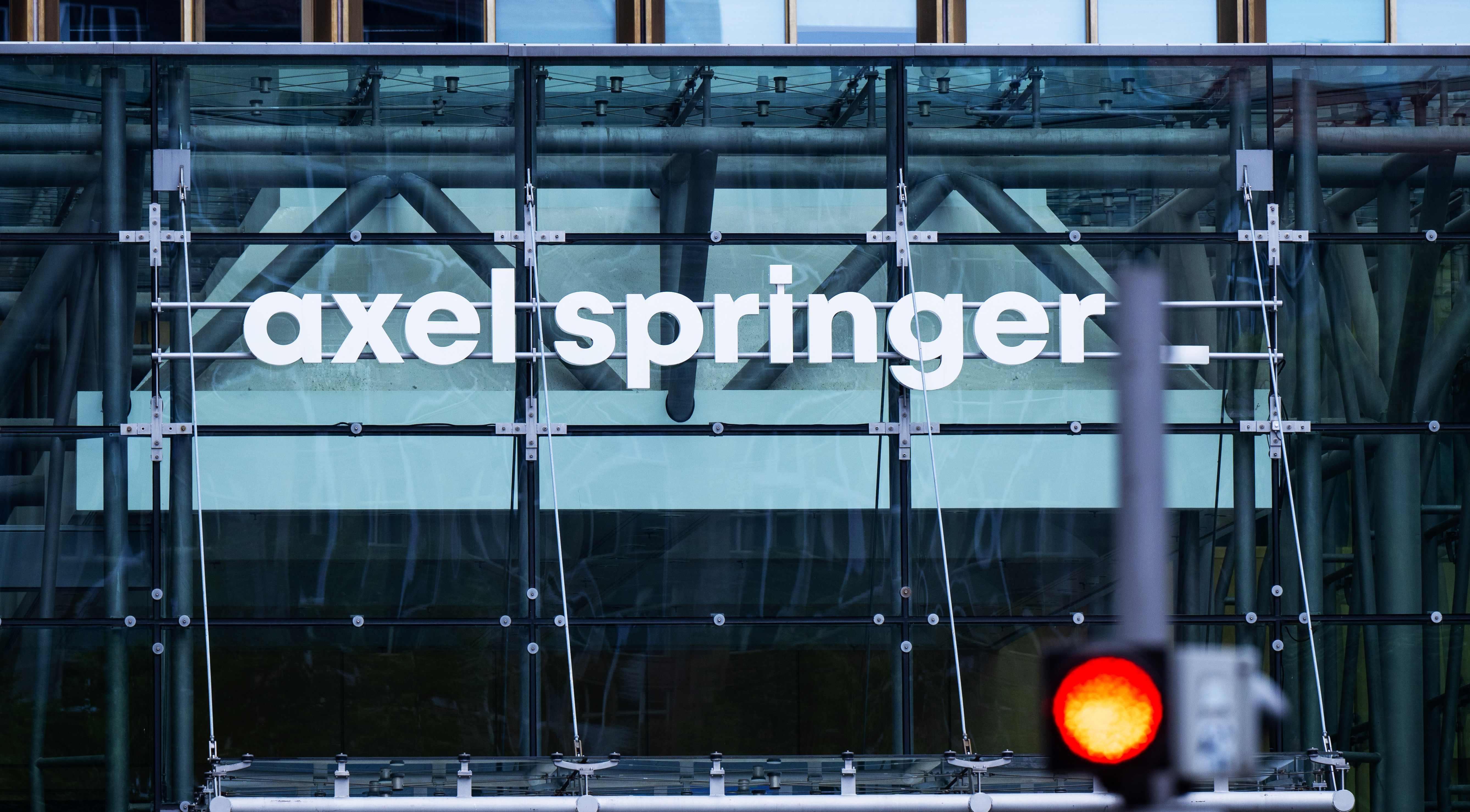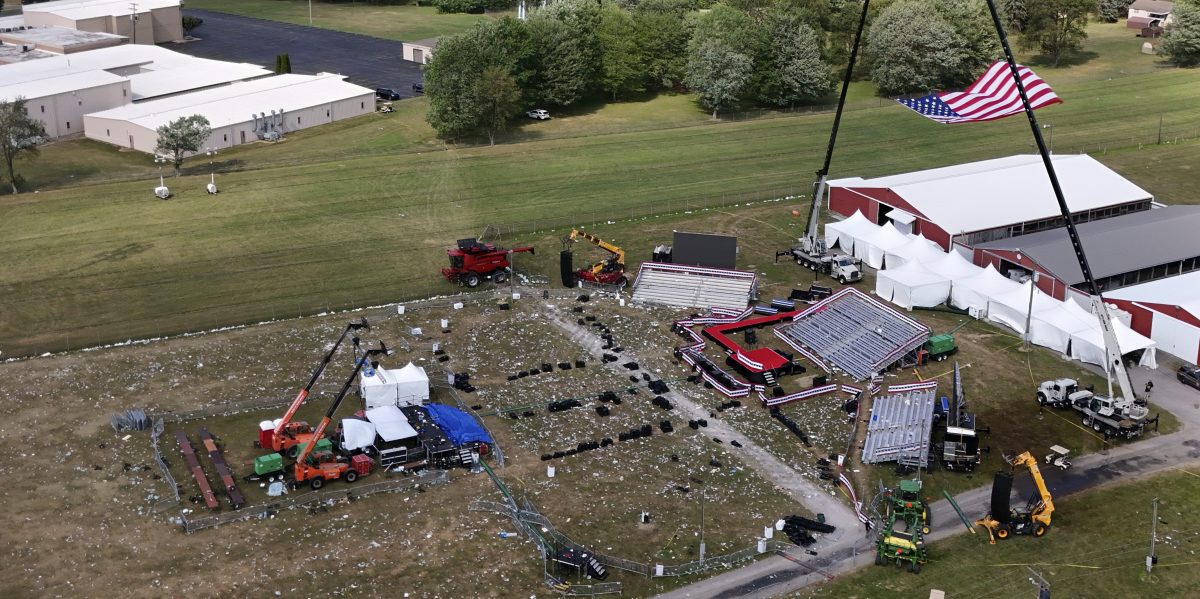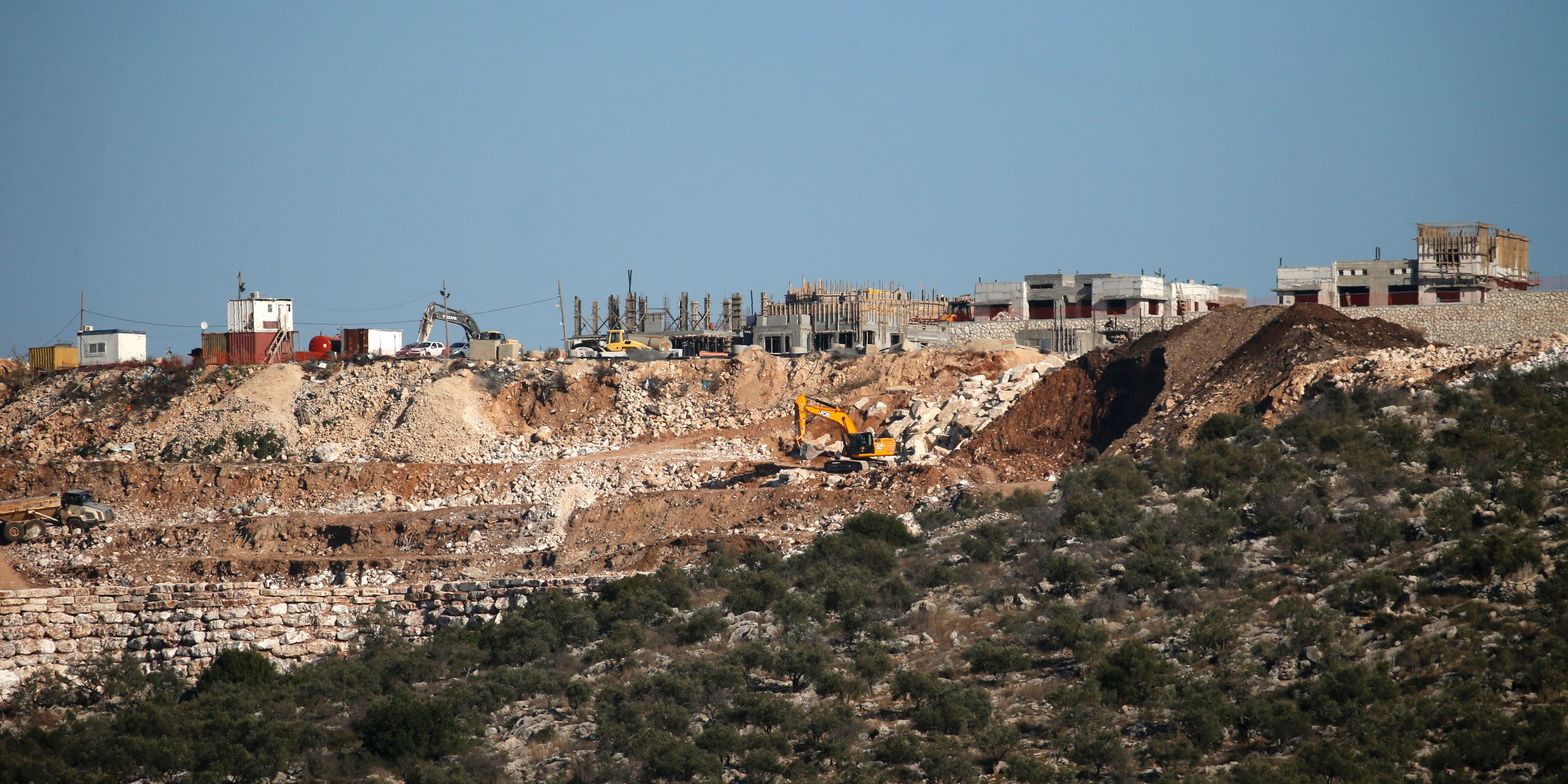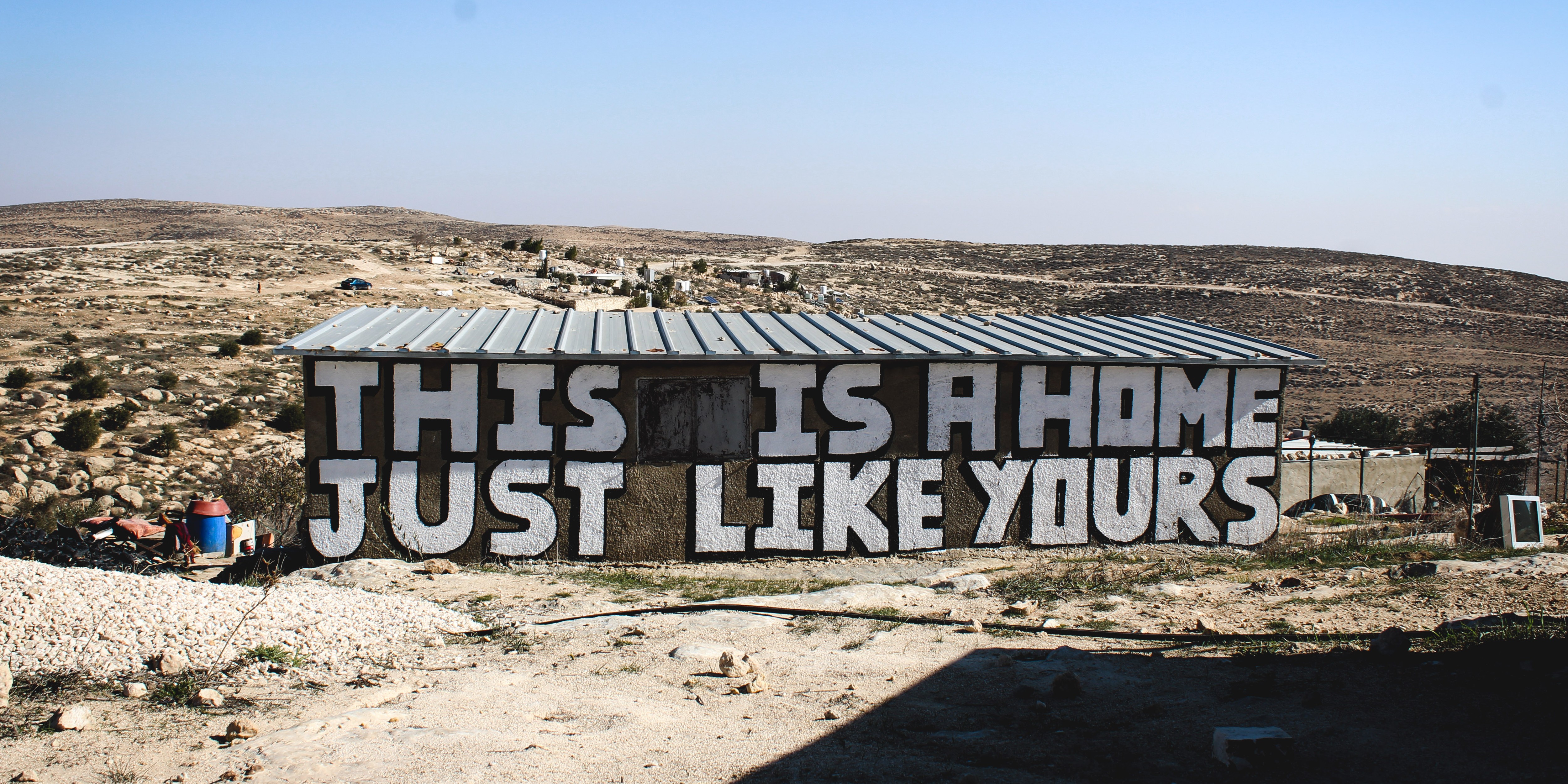One of the ways Germany sought to deal with its dark 20th-century past is its so-called Staatsräson — literally its reason of state — to support Israel. The commitment, which permeates German mass media, intensified after Hamas’s October 7 attack and the subsequent Israeli war against Palestinians in the Gaza Strip.
Axel Springer SE, Europe’s largest publisher, typifies the approach. The owners of Bild, Germany’s leading newspaper, Springer takes an unwavering pro-Israel stance. “God bless the IDF,” Die Welt, a Springer-owned German daily, declared in a recent editorial. And the company’s CEO wrote in Springer-owned Politico that the chants of “from the river to the sea, Palestine will be free” were tantamount to calling for genocide against Jews, a position in line with the German government’s November declaration that the slogan was illegal.
Defending Israel against criticisms of human rights violations, however, is one thing. Making money off those violations is another. Yet that’s exactly what Springer appears to be doing. Springer’s Israeli classified ads website Yad2 — the largest Craigslist-like classifieds site in the country — publishes real estate listings across Israel, including rental apartments and sales in Israeli settlements that are considered illegal under international law.
In December, Yad2 took out its own advertisement in an Israeli business paper to promote home sales on its site. “From the River to the Sea,” the ad, which appeared in The Marker, says in English, depicting a map of Israel and Palestine with pins dropped all over. The map has no “Green Line” or other markings separating Israel’s internationally recognized borders and occupied Palestinian territory. Below the co-opted protest slogan, the ad continues in Hebrew: “Yad2 helps you look forward and build a future in your next home in Israel.”
Yad2’s advertisement may be, as many commenters saw it, a cheeky reference to the pro-Palestinian rhetoric, but it also points to how Springer makes money off Israel’s settlement enterprise. Like Craigslist, many individuals can post ads for free on Yad2, but some categories of advertisers — including real estate brokers or dealers — need to pay to put up listings.
“Advertising on the website is free for private users,” a representative for Yad2 said in response to an inquiry. “Business users are required to pay according to the terms of the site.” Paid listings, which are highlighted on the site, allow advertisers to increase their reach, they added.
The Intercept found thousands of apartments for sale and for rent in illegal settlements in the occupied Palestinian West Bank. Of those, more than 1,000 were paid ads from brokerage houses — meaning Yad2, and therefore Axel Springer, made money on them. Some of the ads, according to an expert who scanned the listings for The Intercept, are for homes in so-called outposts, or settlements considered illegal under even Israeli law; other home listings appear on private Palestinian land that was seized by the Israeli military for security purposes but now hosts Jewish settlers.
Publishing ads that promote real estate deals in Israeli settlements is both contributing to and benefiting from human rights abuses, said Omar Shakir, the Israel and Palestine director at Human Rights Watch, which has concluded that Israel’s occupation and settlement enterprise contribute to an apartheid system.
“The land these settlements are built on has been expropriated from Palestinians,” Shakir said. “Ultimately, our call would be for the company to end its activities that are contributing to grave human rights abuses.”
Shakir noted that Palestinians — including stateless Palestinians in the West Bank and Gaza, as well as those from Jerusalem or Israel proper who hold Israeli IDs or citizenship — cannot in practice buy or rent in Jewish-only settlements.
“Discrimination has no place at Axel Springer,” said a spokesperson for the company. “This is clearly regulated in our Code of Conduct, which applies to all companies at Axel Springer and is available in several languages, including Hebrew. Axel Springer speaks out clearly — also in the essentials — against any kind of racism. Yad2’s terms of use explicitly state that no one may be discriminated against on the basis of gender, religion, ethnicity or age.” (In fact, Yad2’s terms of use prohibit users from posting “harassing, insulting, hostile, threatening, rude, racist character or content” but don’t explicitly bar discrimination.) Springer did not respond to questions about paid and unpaid advertising for settlement homes on Yad2.
For Shakir, the classified ads for homes in Israeli settlements not only profit off discrimination, but also enable the entire Israeli settlement project by making housing markets in the West Bank viable.
“Companies engaging in this are benefiting from a system that systematically discriminates against Palestinians, that denies them building permits and resources and roads and infrastructure,” he told The Intercept. “They’re also helping to make settlements more sustainable economically and thus further entrench the settlements practice.”
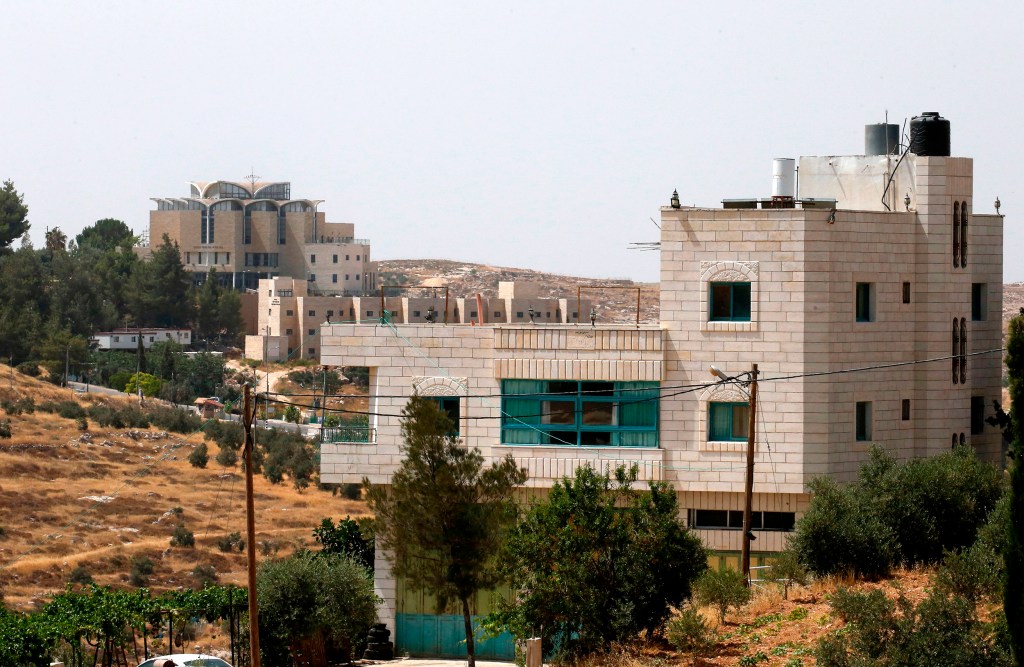
Yad2 in the Settlements
Since its founding in 2005, Yad2 has become Israel’s top online platform for classified ads. A user can look up anything from animals to weapons. The site’s initial growth, however, was on the strength of its property ads and used car sales — which remain its most popular categories for ads, featured prominently at the top of the site.
The tab for apartment sales leads users to a huge number of real estate listings, including for approximately 1,300 apartments and commercial spaces in Jewish settlements in the occupied West Bank alone, as of mid-January. Yad2 users can also find around 1,000 available rental apartments in Jewish-only settlements. Of those, paid posts from brokerages make up more than 800 sale listings, more than 100 rental listings, and more than 100 commercial real estate listings. The website features a map searchable by region — a map where Palestinian villages and towns seem to not exist.
The Yad2 listings encompass properties available for purchase or rent in some of the most ideologically extreme settlements in the West Bank, including Kochav Ha’Shachar, Kedumim, Talmon, Shilo, Eli, Psagot, Tekoa, Otniel, and Susiya. These settlements, like most of the Israeli housing development in the West Bank, exclusively cater to Jewish Israelis. Property acquisition or rentals within their gated communities often hinges on an internal approval process influenced, in part, by ideological considerations.
Israeli settlements are considered illegal under international law, which prohibits the transfer by an occupying army of its own civilians into occupied territory, according to the United Nations Security Council, other international bodies, and every nation in the world except for Israel and, as of the Trump administration, the U.S. The settlements are a key catalyst for escalating violence, killings, and routine house demolitions inflicted on Palestinians in the occupied territories. Israel distinguishes between settlements it considers to be legal, which make up the vast majority of settlements that exist in the West Bank, and unauthorized settlements known as outposts that are illegal even by the country’s own laws.
Yad2’s real estate listings promote properties in such outposts. As of last week, for instance, there were two listings for apartments in the community Bat Ayn B, north of the Palestinian city of Hebron, which Dror Etkes, an expert on Israeli settlements, said was a West Bank outpost that is unauthorized by the Israeli government. Neither of the ads were paid listings from brokerage houses. The recently removed one offered 500 square meters of land and a four-room unrenovated house, priced at 1.5 million shekels, or around $400,000. The other, still live, is for 700 square meters of land for 1.3 million shekels, or around $350,000.
“Israel made a decision many years ago to sacrifice the rule of law for land grabbing and intensifying its settler presence in the West Bank.”
Another posting, according to Etkes, lists land near the existing outpost Ma’ale Rehav’am, in a separate outpost unofficially named Nachal David 224, that was seized from Palestinians and put directly up for sale. (The ads for properties in Bat Ayn B and Nachal David 224 are privately placed listings, meaning the seller is not required to pay for the listing but can do so to promote it.)
Etkes, who founded Kerem Navot, an Israeli organization dedicated to monitoring settlement construction in the West Bank, also located two listings for land in settlements that was taken by the Israeli military in the 1970s for security reasons but is now being sold by brokerages in paid ads on Yad2.
The failure to distinguish between outposts and those settlements considered legal by Israel itself is routine in the country, said Etkes. “Israel made a decision many years ago to sacrifice the rule of law for land grabbing and intensifying its settler presence in the West Bank,” he said. “The law is treated as less than a recommendation.”
Etkes pointed out that, among other politicians, Israeli Finance Minister Bezalel Smotrich and Simcha Rothman, a member of the Knesset who heads the Constitution, Law, and Justice Committee, reside in settlement homes that even Israeli law considers to be illegally constructed.
Springer’s revenue from ads for West Bank settlements homes isn’t limited to extant homes. Yad2’s sub-website, Yad1, also features an ad to buy into a construction project in the West Bank settlement of Ariel. Run by Israeli construction firm Ram Aderet, the project boasts accommodations for dozens of families, spanning buildings between three and eight floors, with four- to six-room apartments. Yad1 marketed the development under a geographic subsection titled “Judea and Samaria,” a term for the West Bank favored by Israel’s pro-settler right.
In another subsection, Yad1 markets apartments across Israel–Palestine exclusively for the religious Jewish population — something the company faced scrutiny for earlier this year in the Israeli media.
“This violates obligations under the U.N. Guiding Principles on Business and Human Rights,” said Human Right Watch’s Shakir.
The rights group previously pressured the home-rental giant Airbnb into removing of rentals in West Bank settlements from its platform, though the listings were eventually restored.
Airbnb was among the companies listed in a 2020 U.N. human rights release on firms involved in business with Israeli settlements. According to Shakir, the same logic applies to a platform like Yad2: Companies operating in settlements are profiting off the ongoing Israeli occupation.
Pointing to the horrors of Israel’s war in Gaza, Shakir noted that unchecked impunity for human rights abuses can escalate into even more severe violations. “We’ve repeatedly sounded the alarm on settlement construction and associated human rights abuses, which Human Rights Watch has identified as crimes against humanity, apartheid, and persecution,” Shakir said. “The key takeaway here is the imperative for ending impunity and ensuring accountability for grave abuses.”


